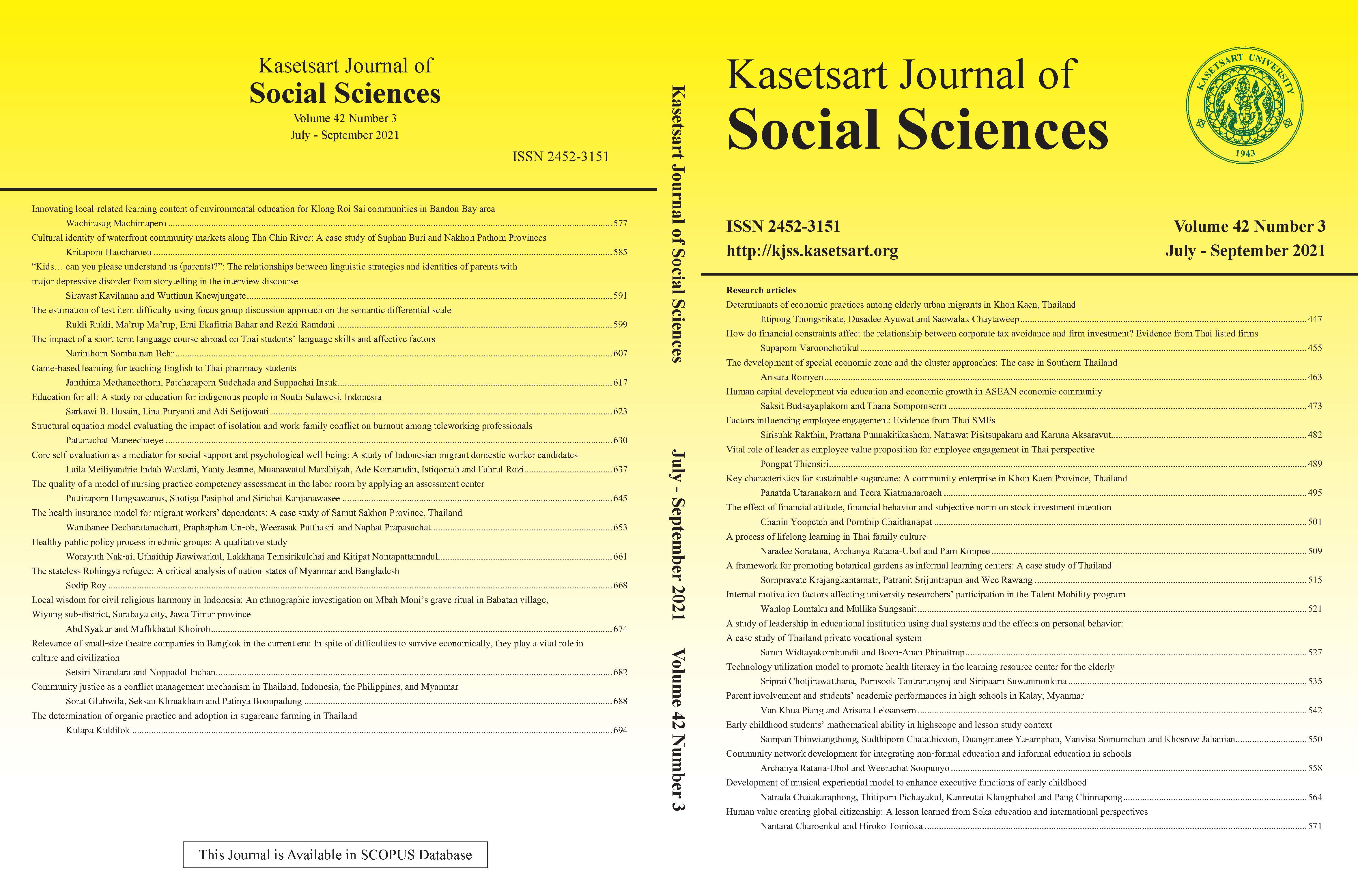Local wisdom for civil religious harmony in Indonesia: An ethnographic investigation on Mbah Moni's grave ritual in Babatan village, Wiyung sub-district, Surabaya city, Jawa Timur province
Keywords:
earth alms, interfaith, Mbah Moni’s grave, tolerant, religious harmonyAbstract
This article explains the phenomenon of the Mbah Moni punden (grave) ritual related to the harmony of a plural religious community in Babatan village, Wiyung, Surabaya, East Java. It is argued that the Mbah Moni’s grave ritual holds an ethical heritage that contributes positively to the harmony of the interfaith in Babatan village. To prove it, an ethnographic investigation was conducted by observing Mbah Moni’s grave, sedekah bumi (earth alms) rituals, and interreligious harmony practices in Babatan. Data were collected inductively and interpreted by interviewing 20 religious and community leaders and conducting focus group discussions with 12 representatives from different religious groups in order to provide a comprehensive explanation. The results indicated that the Babatan villagers carried out sedekah bumi ritual to invoke the blessings of God through the protection of Mbah Moni as danyang (guardian spirit); they interpret Mbah Moni as a friendly and tolerant figure who gets along well with her sister, Mbah Aminah, despite having different religion; they frame the spirit of interreligious harmony from Mbah Moni’s ethical values in the earth alms ritual and apply it in everyday life with the slogans, “Babatan guyup-rukun (Babatan get along well); sepi ing pamrih, rame marang gawe (in sincerity and hard work)”.
Downloads
Published
How to Cite
Issue
Section
License
Copyright (c) 2021 Kasetsart University

This work is licensed under a Creative Commons Attribution-NonCommercial-NoDerivatives 4.0 International License.
This is an open access article under the CC BY-NC-ND license http://creativecommons.org/licenses/by-nc-nd/4.0/










